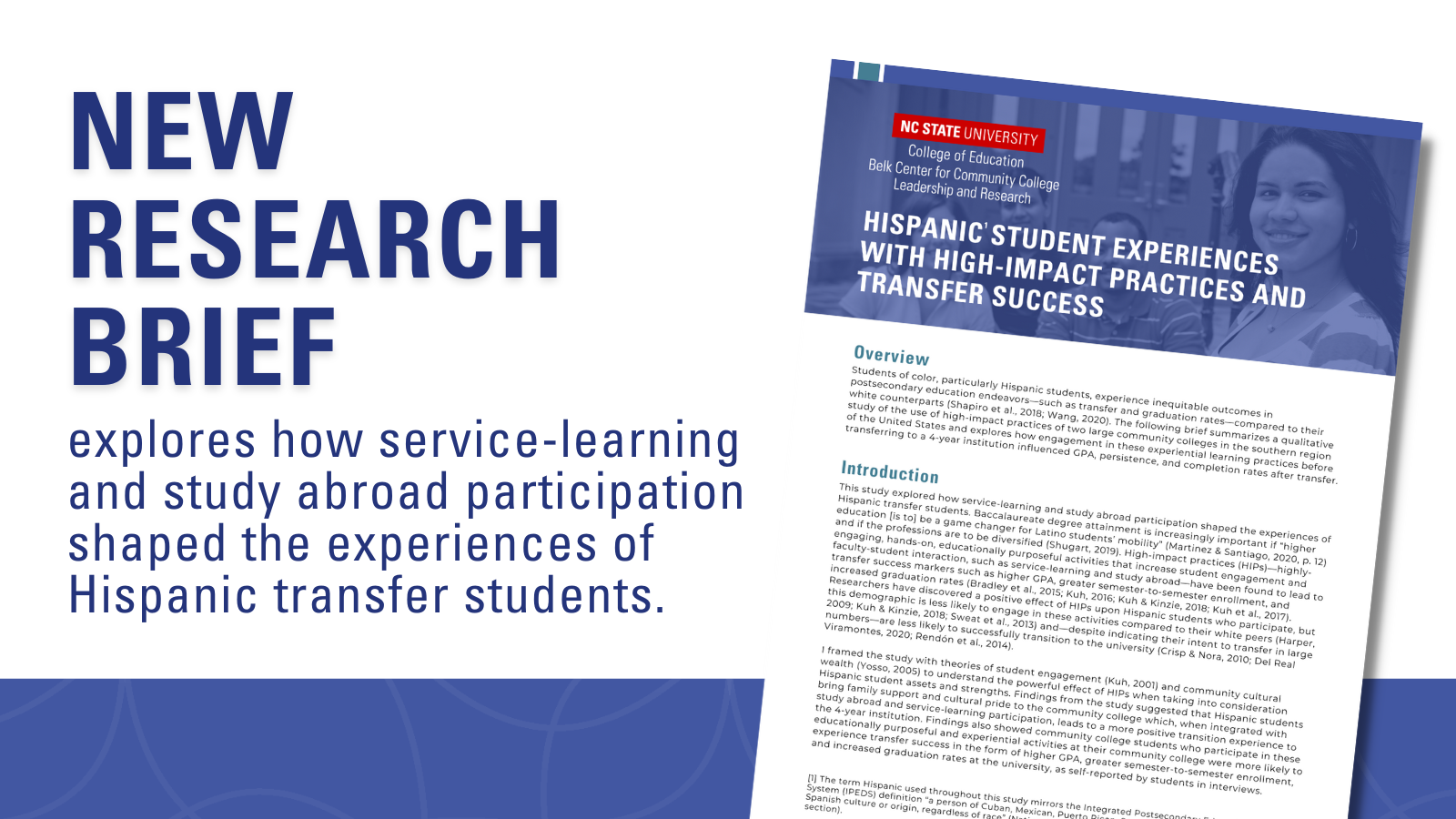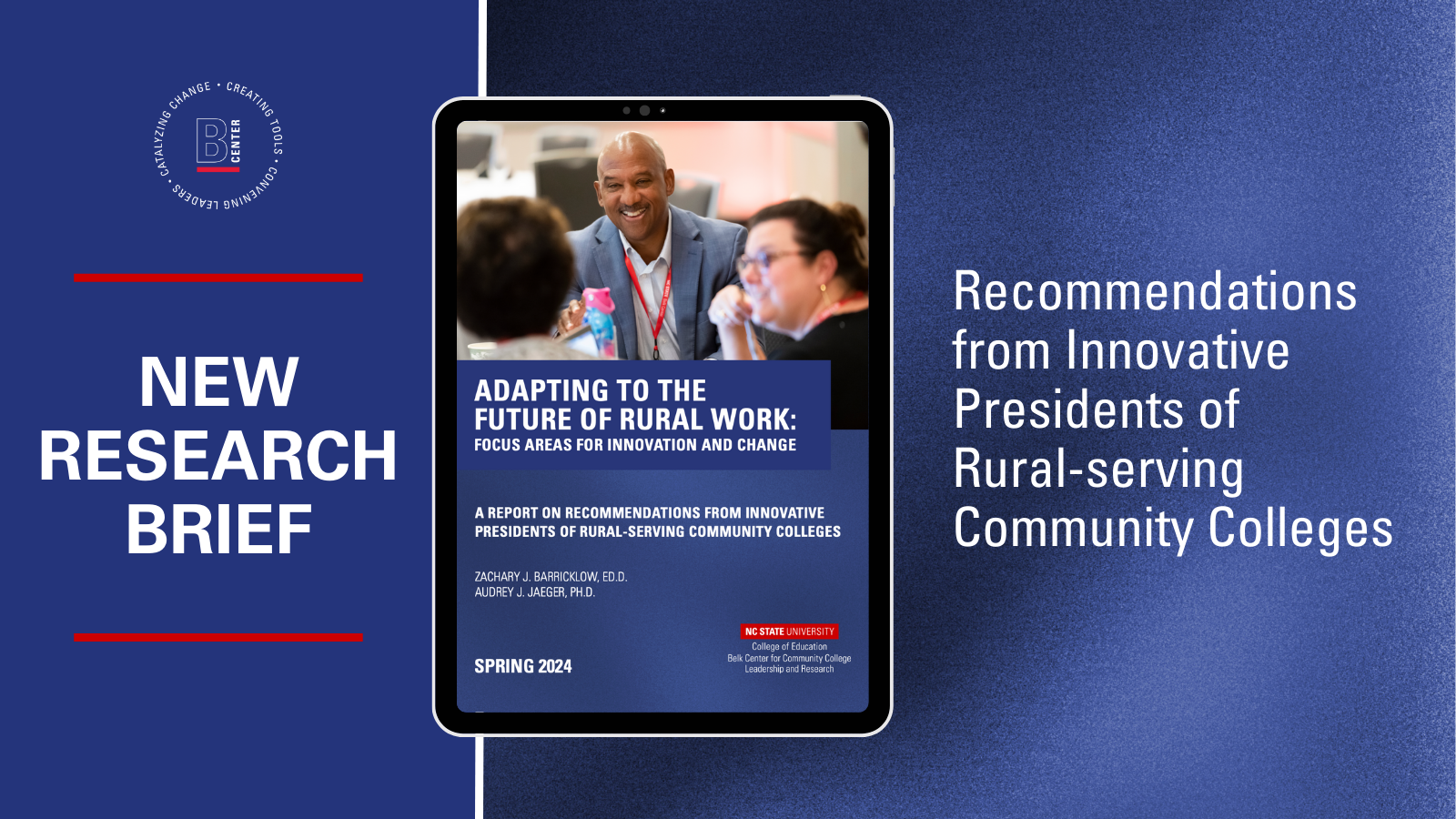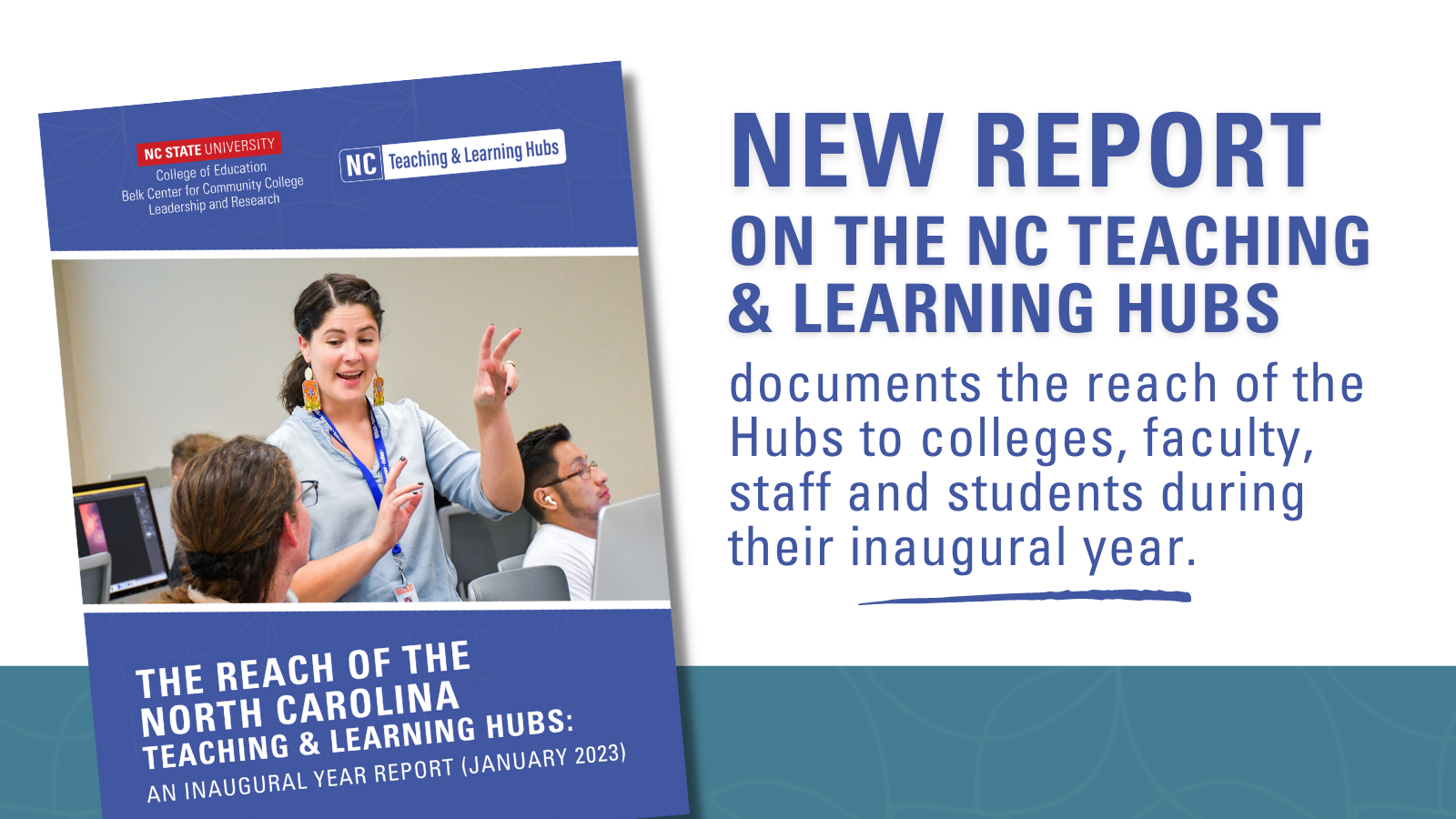New research by Steve Turner, Ed.D., examines Hispanic student experiences with high-impact practices and transfer success

In recent years, high-impact practices (HIPs) have been proven as a critical component of student retention, engagement and persistence for students across all backgrounds. More specifically, these engaging and hands-on educational practices have been found to lead to success markers for transfer students – including higher GPA, greater semester-to-semester enrollment and increased graduation rates.
In this new research brief, Steve Turner, Ed.D., dean of humanities and social sciences at Guilford Technical Community College, explored the use of HIPs – specifically service-learning and study abroad participation – and how they shaped the experiences of Hispanic transfer students.
Key findings include:
- Students engaged in study abroad and service-learning at the community college were able to experience transfer success at the university due to supportive families and cultural pride.
- Participating in HIPs at the community college gave students meaningful experiences that propelled them toward transfer to the university and enabled them to realize they could make an impact on others’ lives.
- Colleges had structures and systems in place – such as dedicated programming offices, adequate staffing for advising, and engaged leadership which invested in creating supportive resources – that removed barriers to student participation in HIPs.
- Students were more likely to participate in HIPs at the community college when institutional resources and programs were adapted to provide greater access and designed to overcome challenges.
- Students recalled strong engagement in multiple HIPs and co-curricular opportunities at the community college, which contributed to a more successful transfer experience to the university. They accumulated assets and strengths that built perseverance capital and established a strong cultural identity as a result of their engagement.
This research also highlights several key action areas for community college educators and campus leaders that serve Hispanic students, including the development of cultural affinity groups and organizations, adaptation of in-person experiences, and development of greater opportunities for engagement, among others.
- Categories:


